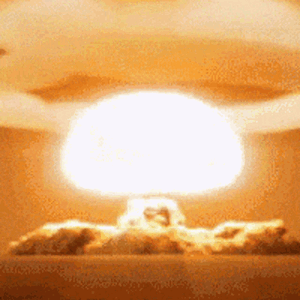Pros: Kick the can down the road "5-10 yrs", MAYBE there is a regime change but nation building rarely works.
Cons: Potential world war now (suppose China/Russia/Turkey/Egypt get dragged in), at a minimum attacks on US bases in middle east. Potential death for more Iranian civilians. Crippling the energy infrastructure for innocent Iranian civilians. Expensive. Higher costs due to oil and canal disruptions. Piss off the middle-east other than Israel. Hurt our reputation regarding diplomacy. War crimes (assassination)
They're already weakened, so there's a chance regime change happens without our big bomb and involvement. So i don't see the pros outweighing the cons.
This is a well-reasoned post and it's a logical conclusion not to bomb, even if I disagree with said conclusion. It is not an easy call, made more difficult because I do not have faith in the current US or Israeli governments to make the right decisions going forward.
Please permit me to respond with my own pros and cons list:
Pros:
- Kick the can down the road 5 to 10 years
- Make the costs of reinstituting the nuclear program high enough so that the Iranian mullahs don't reinvest. They have other bigger problems right now.
- Create a precedent to provide a disincentive for other countries contemplating their own nuclear weapons programs
- I believe that Fordow is not in a populated area and we can therefore minimize civilian deaths, but I don't know that for a fact.
- Bring the current military action and suffering to a conclusion. If there's no nuclear program, there is no reason for Israel to bomb.
Cons:
- Mission creep. Our mission should be to disable Iran's nuclear program. Yet we risk upping the ante to regime change or additional leadership decapitation, which would be strategic disasters.
- Israel continues their military action because their strategic objective is regime change in which we turn into an active participant.
- A response from China. Currently seems to be unlikely, but I don't what is being communicated behind closed doors.
- If regime change does occur, we have no foreknowledge of what comes next. This hasn't worked out well for us in places like Afghanistan and Libya.
- Direct terror attacks by Iran. I would expect these regardless of what we choose to do, but the reaction may be more severe if we bomb directly.

